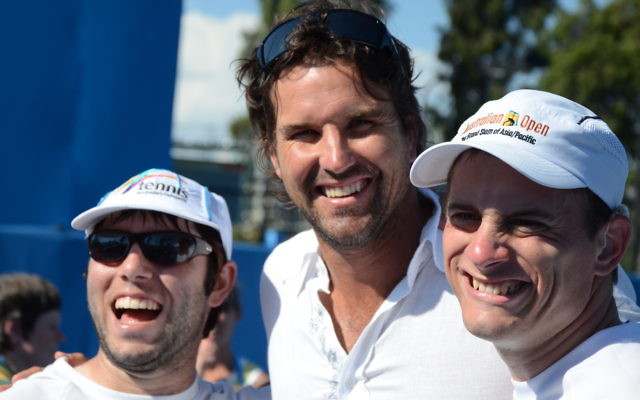Schweitzer’s sweet success
WHILE the Australian Open grand slam tournament was taking place at Melbourne Park recently, so were the Australian National Tennis Championships for players with an intellectual disability.
WHILE the Australian Open grand slam tournament was taking place at Melbourne Park recently, so were the Australian National Tennis Championships for players with an intellectual disability, where Maccabi Tennis player Zvi Schweitzer won the doubles title for the third time in four years.
Schweitzer, 23 and now ranked third in Australia, teamed up with David Burke, ranked number one, from Gosford, NSW to win the doubles championship and retain the title as the number one double’s pair in the country.
“It was just superb to win it,” Schweitzer told The AJN.
“I loved it all, and it was a lot of fun.”
After easily winning their round-robin games and a convincing win in the semifinal, they had a tougher time in the final, against the opponents that defeated them at last year’s championships.
Despite losing the first two games, Schweitzer and Burke settled into their routine and won six of the next seven games to take the set 6-3. The next set proved a bit more difficult, with the score tied at 3-3, but Schweitzer and Burke got the vital break, and held serve to lead 5-3. Schweitzer managed to serve out the game for a 6-4 win to clinch the doubles championship.
“We had a good comeback to win it as well, and I won both the sets off my serve, so I was happy,” Schweitzer said.
In the singles, Schweitzer could only manage to reach the semifinal stage where he lost to the eventual winner, but he was thrilled to meet Australian tennis icons Pat Rafter and Wally Masur.
“I was so surprised to meet them after our game,” Schweitzer said.
“I was sitting down in the second set and saw him [Rafter], and I could not believe it.”
This is not the first taste of success for Schweitzer, who won both the singles and doubles events in 2009, as well as taking home two silver medals at the Global Games in Italy last year, the equivalent of the Olympic Games for athletes with a disability.
“I absolutely loved it [the Global Games],” Schzeitzer said. “It was a new adventure and I met new people, and winning the medals was great.”
Schweitzer’s improvement has been exponential since first taking part in the intellectual disability tournaments at the age of 15, and all he wants to do his play his favourite sport.
Schzeitzer is now setting his sights on the next Global Games which will be held in 2015.
“I really want to win more medals at the next Global Games and maybe one day playing in a grand slam.”
ASHLEY SHENKER


comments